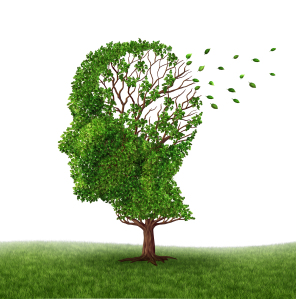
01 May Dementia and Alzheimer’s
Can you imagine not knowing where you are, what day of the week it is, what year it is, and even who the people are that are around you and caring for you? These are just some of the challenges that face those who face dementia and the people that care for them. It is a daily struggle that causes much heartache and suffering for those suffering with dementia and their families.
Dementia can affect many areas of cognitive processes including:
- memory
- attention
- language
- problem solving
Diagnosis of dementia is based upon the existence of symptoms for 6 months or longer, and often times is allowed to progress significantly before any treatment or therapy is attempted.
The further dementia progresses, the more severe the symptoms become. The progression comes with further disorientation in time, place and person. Dementia is not solely about a memory problem. It reduces that ability for the person suffering to learn new things, reason, retain new experiences and be able to recall past experiences. Dementia also affects and disrupts thought patterns and feelings, as well as interferes with the completion of daily tasks and activities. It becomes harder and harder for them to make the connection to the present and to those around them. It is an extremely hard for family members to understand and cope with a diagnosis of dementia. Day after day, week after week, the person that you love is fading in front of you and it is difficult to accept that often times there is nothing that you can do.
A commonality between many dementia patients is the presence of depression and/or anxiety. It is understandable and even expected due to the nature of the symptom.
A very confusing part of the diagnosis to many people is the difference between Alzheimer’s and dementia. Put simply, Alzheimer’s is a specific disease and dementia is a symptom of Alzheimer’s. Both are extremely complex in their own ways, which can make a diagnosis and treatment plan even harder to come by.
Both Alzheimer’s and dementia are taking a serious toll on our healthcare and nursing home system. It is a constant struggle to keep those that are undiagnosed from slipping through the gaps in the system, as well as to keep those that are receiving treatment in the programs that are treating them. Burn out rates for family members and nurses alike are extremely high due to the amount of care giving that is required, especially during the later stages. Support for families and healthcare professionals is an essential part of the effective treatment of dementia.
Despite the difficulties faced by those diagnosed with dementia and their families, there is a light at the end of the tunnel. Sometimes the diagnosis isn’t a form of dementia that is irreversible. There are those that are lucky enough to be able to receive treatments that will reverse the effects of dementia. Regardless of diagnosis there is always hope for the future. With faith, love, and support, we can look towards a brighter future in the treatment of this devastating diagnosis.



